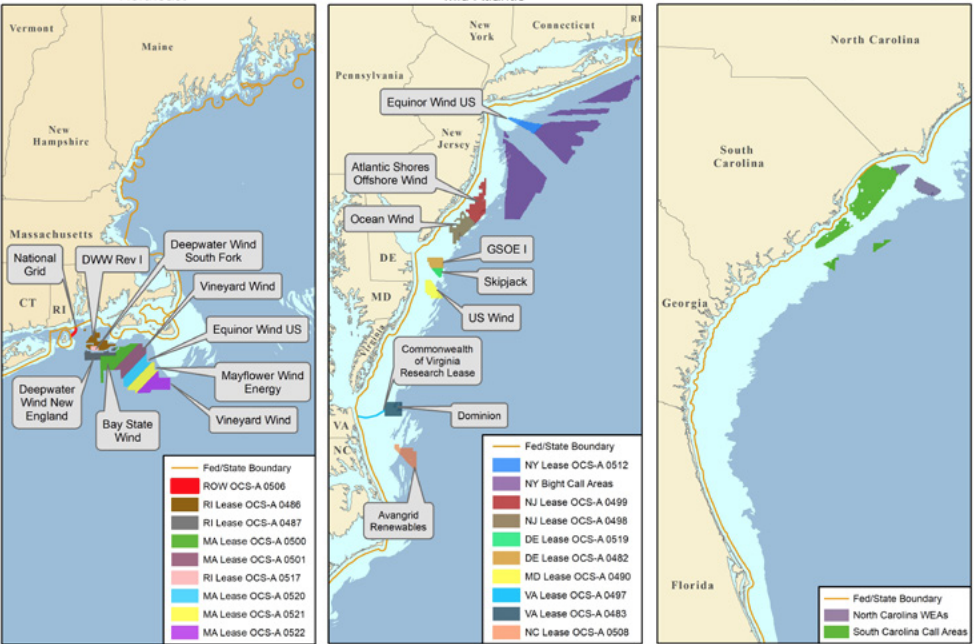The New England Fishery Management Council updated its offshore wind energy policy, endorsing calls for the Bureau of Ocean Energy Management to establish “a compensatory mitigation fund for damages that occur to the marine environment and fish habitat,” and losses to fishing vessels as turbine arrays are built.
The council’s Dec. 7 deliberation came with a new presentation from BOEM on the agency’s push to review and approve up to 16 wind energy projects off the East Coast by late 2025.
BOEM opened a preliminary public comment process through Jan. 7 to prepare a “guidance” plan for fisheries mitigation measures, with a draft document planned in spring 2022 and a final proposal in the summer.
A summary released by the council on the first day of its Dec. 7-9 meetings noted the tight time frame.
“On a more time-sensitive note, the Council was briefed on BOEM’s request for information ‘to obtain input from the public, especially the fishing community, on avoiding, minimizing and, if needed, compensating for impacts from offshore wind energy projects to commercial and recreational fisheries.’”
During an Dec. 6 online Zoom meeting convened by BOEM, fishing industry advocates said the agency needs to take more time and in-person workshop meetings with fishermen to fully understand the likely effects of shutting them out of wind turbine arrays during construction — and how they may not be able to fish those areas in the future.
The council’s new seven-page policy document spells out its concerns in detail, including “potential impacts from construction, operations, and decommissioning to fishery species and fisheries from physical habitat conversions and losses, scour and sedimentation, construction and operational noise, electromagnetic fields, micrometeorological effects, and water-column hydrodynamic effects (including impacts to the Mid-Atlantic Cold Pool, as well as thermal changes and changes in currents that influence pelagic habitats).”
The policy expresses support for renewable energy projects, “provided risks to the health of marine ecosystems, ecologically and economically sustainable fisheries, and ocean habitats are avoided. To the extent that they cannot be avoided, they should be minimized, mitigated, or compensated for.”
For fisheries affected by wind projects, the policy calls for “development of a compensatory mitigation fund for damages that occur to the marine environment and fish habitat as well as damages or losses to fishing vessels or their gear, or reductions in operations/revenues, resulting from wind activities.”
The council also stressed the need to consider “cumulative effects” of turbine arrays now planned from southern New England to the Carolinas.
“Because individual wind projects do not occur in isolation from one another, or from other types of development, it is very important to consider the potential for cumulative effects to Council managed species and their habitats, when siting and designing projects,” the policy statement says.
“Cumulative effects analyses are the responsibility of the lead federal agency preparing the National Environmental Policy Act document, but the Council will commit to raising specific concerns for possible incorporation into those analyses.”







